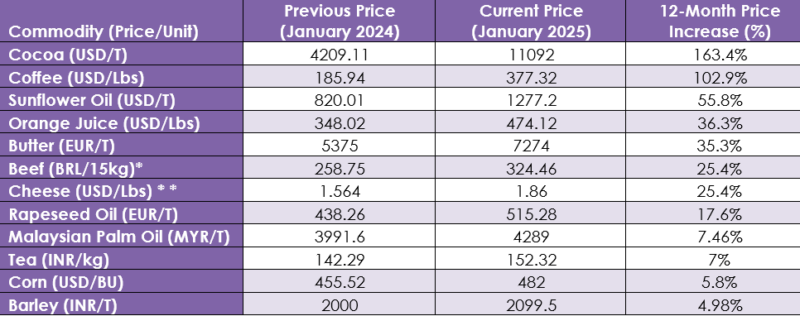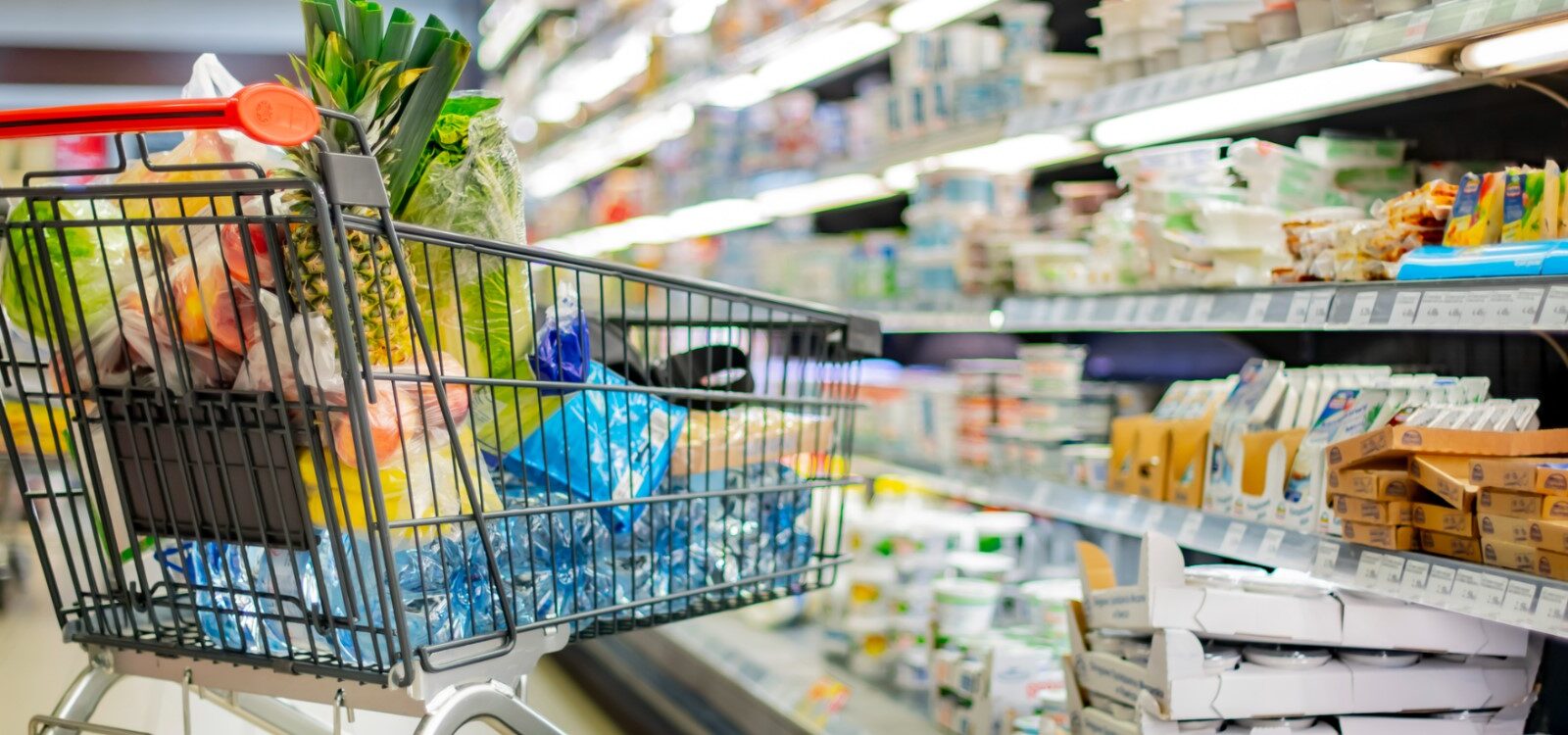- Commodity price volatility expected to persist as extreme weather continues to hit regional crop yields
- Cocoa prices increase by 163%, coffee prices increase by 103%, sunflower oil prices are up by 56%, and orange juice has seen an increase of 36% in the past year
Food prices are expected to remain volatile through 2025, says Inverto, the procurement and supply chain management subsidiary of Boston Consulting Group.
Inverto says that the long-term trend towards more extreme weather events will continue to hit regional crop yields causing sudden price spikes. A combination of higher-than-average rainfall and higher temperatures have led to coffee prices up 103% and cocoa prices up 163% in the last 12 months.*
Similarly, sunflower oil prices have increased 56% in the past year as drought in Bulgaria and Ukraine (as well as the continued impact of the war) has led to poor crop yields, creating further unpredictability in sunflower oil prices.

* Commodities contract based on Brazilian beef
** Commodities contract based on US cheese
Businesses must adapt their strategies to minimise the impact of crop failures
Inverto says that businesses should plan for the ongoing volatility of food prices due to shortages by adapting their procurement strategy.
Katharina Erfort, Principal at Inverto, says: “Food manufacturers and retailers should diversify their supply chains and sourcing strategies to reduce overreliance on any one region affected by crop failures.”
“Companies can weather these price shocks by using commodity hedging strategies. Buying cocoa futures contracts on commodities exchanges or negotiating forward contracts with sellers will enable companies to mitigate the risks of price volatilities.”
“A hedging strategy, such as a forward contract, allows companies to buy commodities, such as cocoa, at a specified price on a specified later date. Financial hedging strategies can help stabilise costs and reduce exposure to price volatility.”
Erfort adds that “The impact of price volatility can also be reduced by leveraging advanced risk management AI tools.”
“Companies should also undertake more contingency planning that will allow them to more quickly swap one food commodity for another. For example, the rise in orange juice prices has led manufacturers to look at how they switch for example to apple juice, which hasn’t seen the same price increase.”
Food commodity prices are set to remain volatile over the coming year. In addition to climate risks, higher wages for workers and rising energy costs are also likely to cause costs for firms in the food industry to rise. This highlights how firms need to make the right strategic decisions to navigate these price shocks.
*Year end January 31, 2025
About Inverto
Inverto is a leading global consultancy specializing in strategic procurement and supply chain management. The consultancy goes beyond pure cost management to deliver business value and a competitive edge for its clients. Inverto transforms procurement and supply chain functions, enabling long-term success by fostering innovation, resilience, and sustainability.
Operating under the umbrella of BCG, Inverto expands BCGs extensive offerings with a comprehensive array of procurement optimization solutions. Inverto currently employs more than 600 experts across three continents. Clients are globally renowned brands from all industries, as well as the world’s leading private equity firms.
For more information, please visit https://www.inverto.com/en/
